
- mikeytap
- Speed Champion
 Offline
Offline 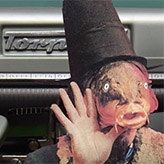
- From: Georgia, USA
- Registered: 25-12-2021
- Posts: 350
Re: What Are You Typing On Today...?
That’s a brand I was not aware of. The case resembles an Olympia SM3. Thanks for the interesting details and always like to know if a good typer.
- Be kind
- Pete E.
- Typewriter Talk Elite
 Offline
Offline 
- From: Idaho - USA
- Registered: 23-6-2020
- Posts: 2,591
Re: What Are You Typing On Today...?
The case probably has more stout metal in it than the Italian tanks of WWII... ![]()
- •
- mikeytap
- Speed Champion
 Offline
Offline 
- From: Georgia, USA
- Registered: 25-12-2021
- Posts: 350
Re: What Are You Typing On Today...?
Pete E. wrote:
The case probably has more stout metal in it than the Italian tanks of WWII...
Haha.
The Olympia cases, some kind of pressed wood?
- Be kind
- M. Höhne
- Key Master
 Offline
Offline - From: Maine
- Registered: 14-3-2013
- Posts: 648
Re: What Are You Typing On Today...?
mikeytap wrote:
Pete E. wrote:
The case probably has more stout metal in it than the Italian tanks of WWII...
Haha.
The Olympia cases, some kind of pressed wood?
Yes. Pressed, glue-impregnated wood painted with hammertone paint. This wood technique was used for several airplanes around WWII, among many other uses like furniture, and Germany had a lot of experience with it. In a way, it's surprising it was not more common for typewriter cases as it was more efficient than dovetail-joint rectangular cases covered in fitted and glued fabric. Looks good, too.
- mikeytap
- Speed Champion
 Offline
Offline 
- From: Georgia, USA
- Registered: 25-12-2021
- Posts: 350
Re: What Are You Typing On Today...?
Yes, like sculpture technique I suppose. Carve an original, make a mold and make replicas.it does seem like others would have followed.
M. Höhne wrote:
mikeytap wrote:
Pete E. wrote:
The case probably has more stout metal in it than the Italian tanks of WWII...
Haha.
The Olympia cases, some kind of pressed wood?Yes. Pressed, glue-impregnated wood painted with hammertone paint. This wood technique was used for several airplanes around WWII, among many other uses like furniture, and Germany had a lot of experience with it. In a way, it's surprising it was not more common for typewriter cases as it was more efficient than dovetail-joint rectangular cases covered in fitted and glued fabric. Looks good, too.
- Be kind
- mikeytap
- Speed Champion
 Offline
Offline 
- From: Georgia, USA
- Registered: 25-12-2021
- Posts: 350
Re: What Are You Typing On Today...?
mikeytap wrote:
Yes, like sculpture technique I suppose. Carve an original, make a mold and make replicas.it does seem like others would have followed.
btw my haha not in reference to Olympia cases but metal in Italian tanks joke by Pete. Love the Olympic cases.
M. Höhne wrote:
mikeytap wrote:
Haha.
The Olympia cases, some kind of pressed wood?Yes. Pressed, glue-impregnated wood painted with hammertone paint. This wood technique was used for several airplanes around WWII, among many other uses like furniture, and Germany had a lot of experience with it. In a way, it's surprising it was not more common for typewriter cases as it was more efficient than dovetail-joint rectangular cases covered in fitted and glued fabric. Looks good, too.
- Be kind
- Pete E.
- Typewriter Talk Elite
 Offline
Offline 
- From: Idaho - USA
- Registered: 23-6-2020
- Posts: 2,591
Re: What Are You Typing On Today...?
Today's machine...my 1978 ADDO model 621 portable.
This was the time in the 1970's when the Facit company acquired ADDO (for their calculators) and allowed these ADDO-badged machines to come out.
It is a Facit 1620 in differing colors and with ADDO badging. And with platen knobs with a longer shank.
Here is a comparison of the Facit and ADDO portables in my collection. You can see the trend for lighter weight and you see more and more plastic, internally. Metal body cowlings were maintained. Weights, below, are without the case weights :
Facit TP1 - 1964 - 13.8 lbs.
Facit TP2 - 1967 - 13.6 lbs.
Facit 1620 - 1969 - 13.4 lbs.
ADDO 621 - 1978 - 13.2 lbs.
.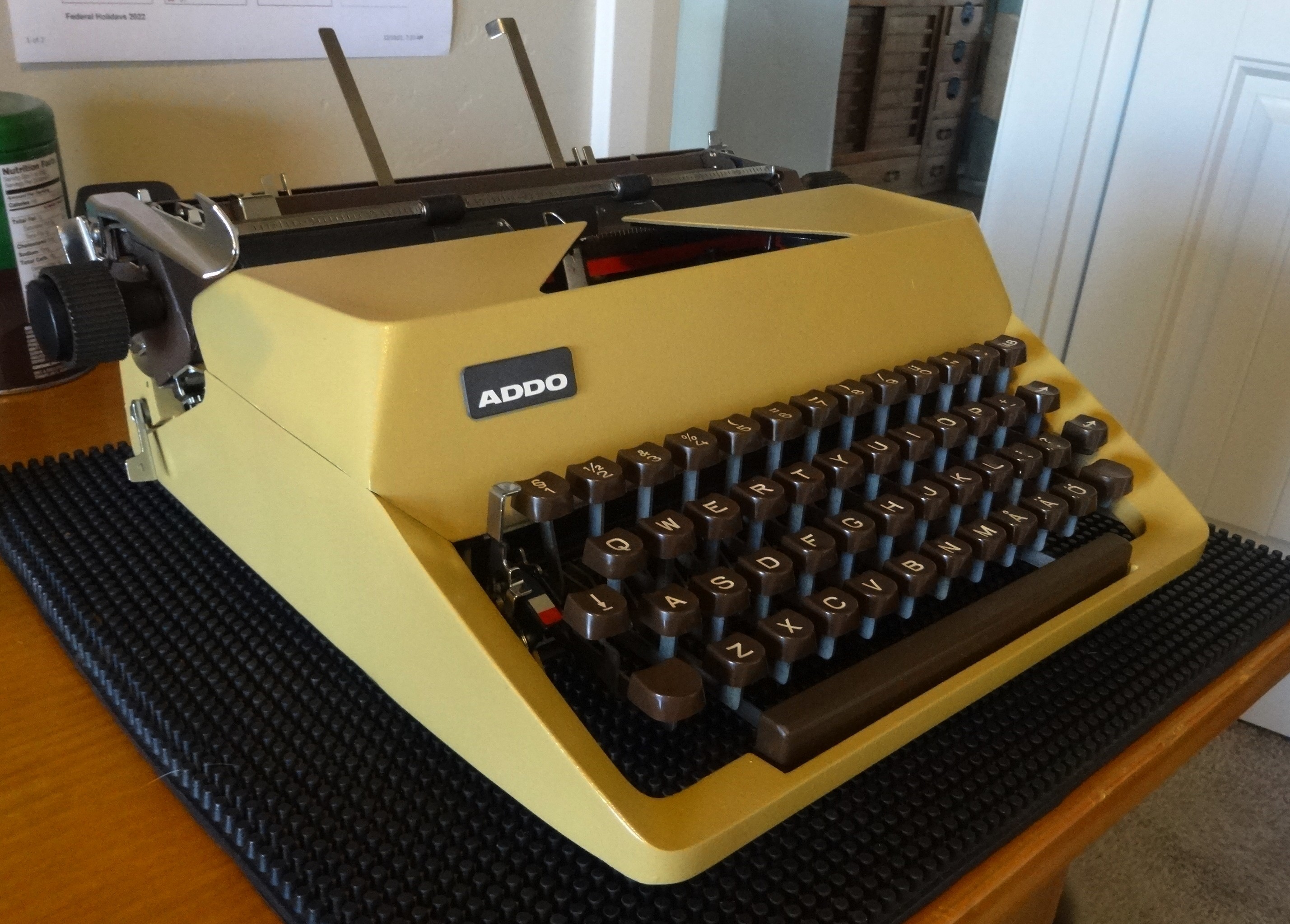
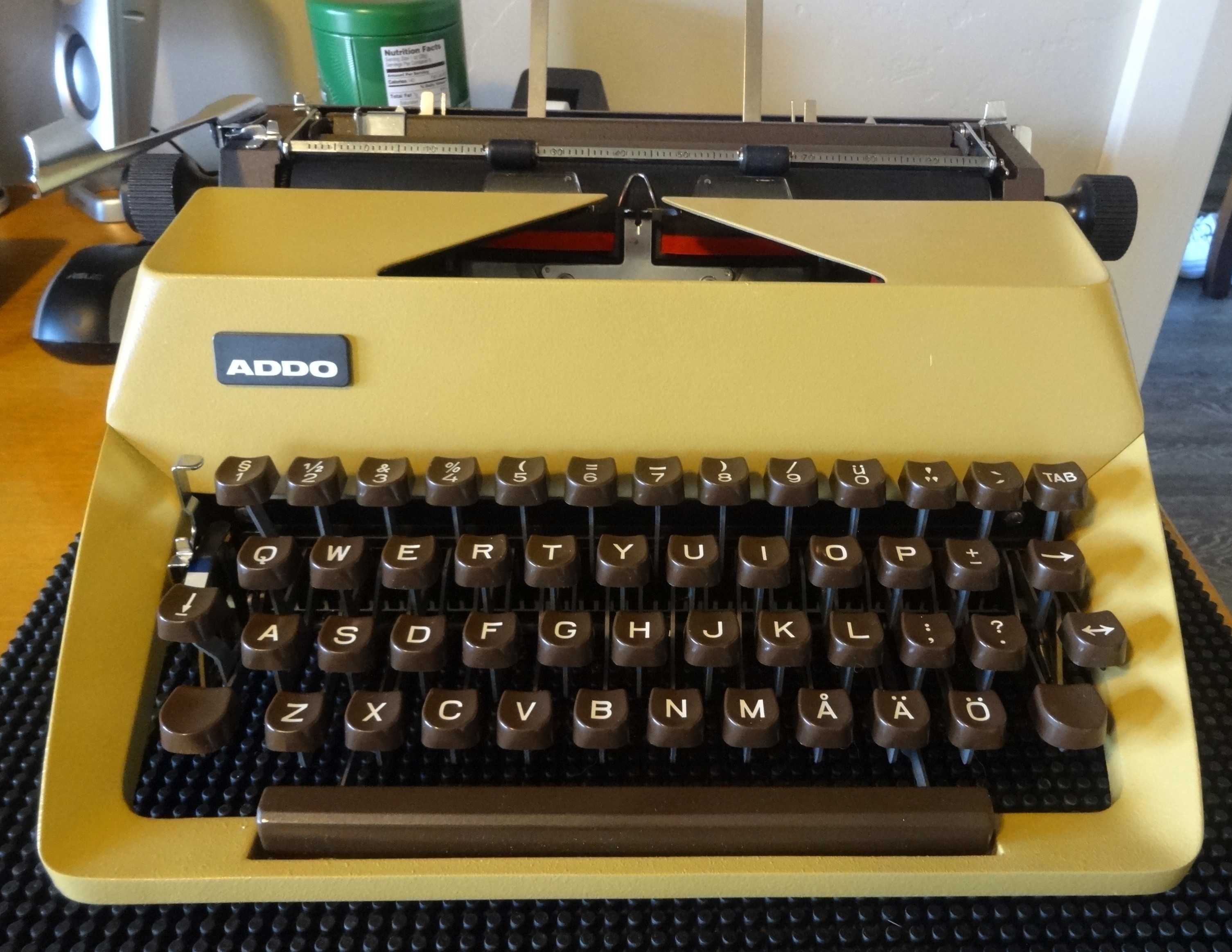
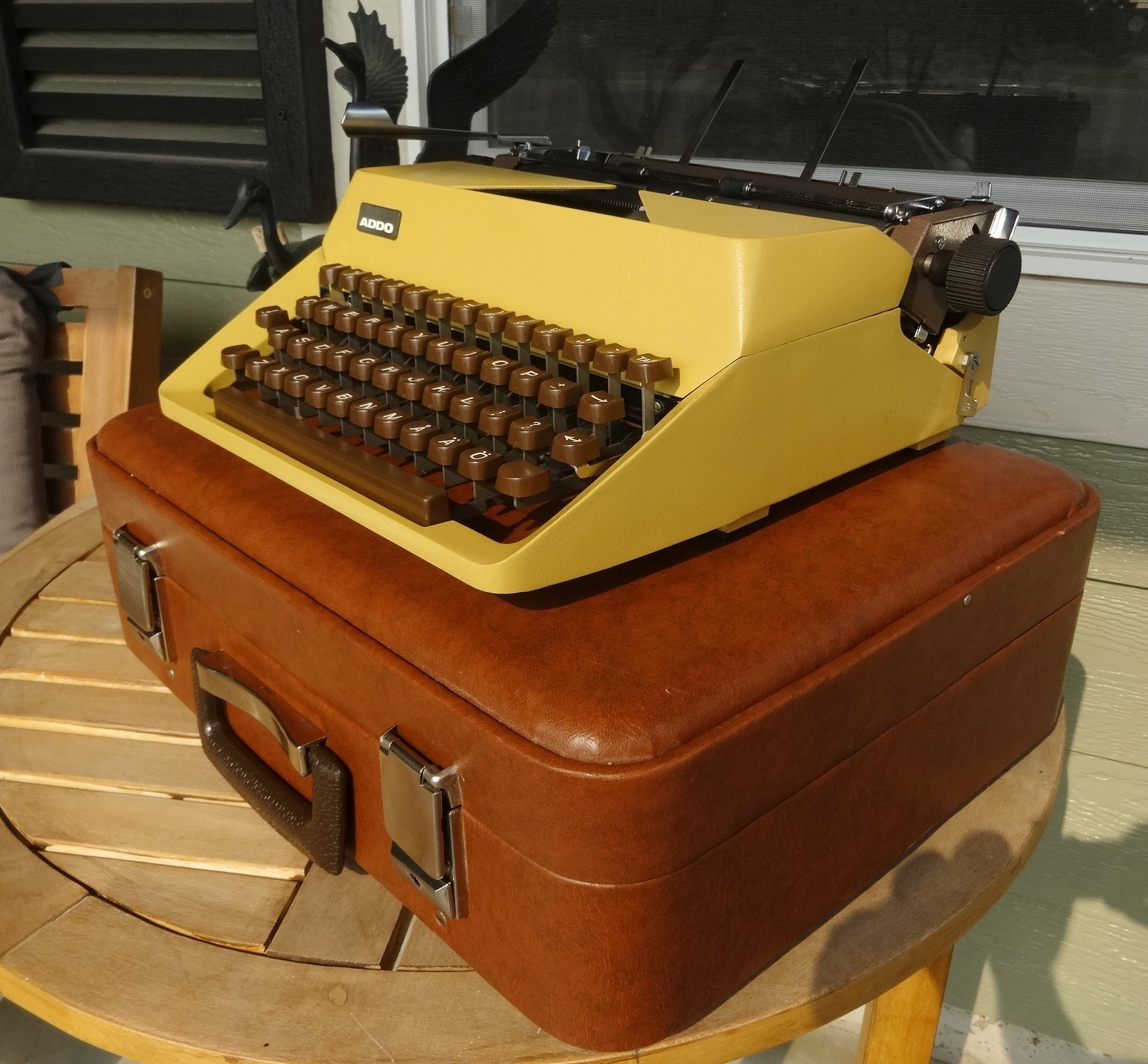
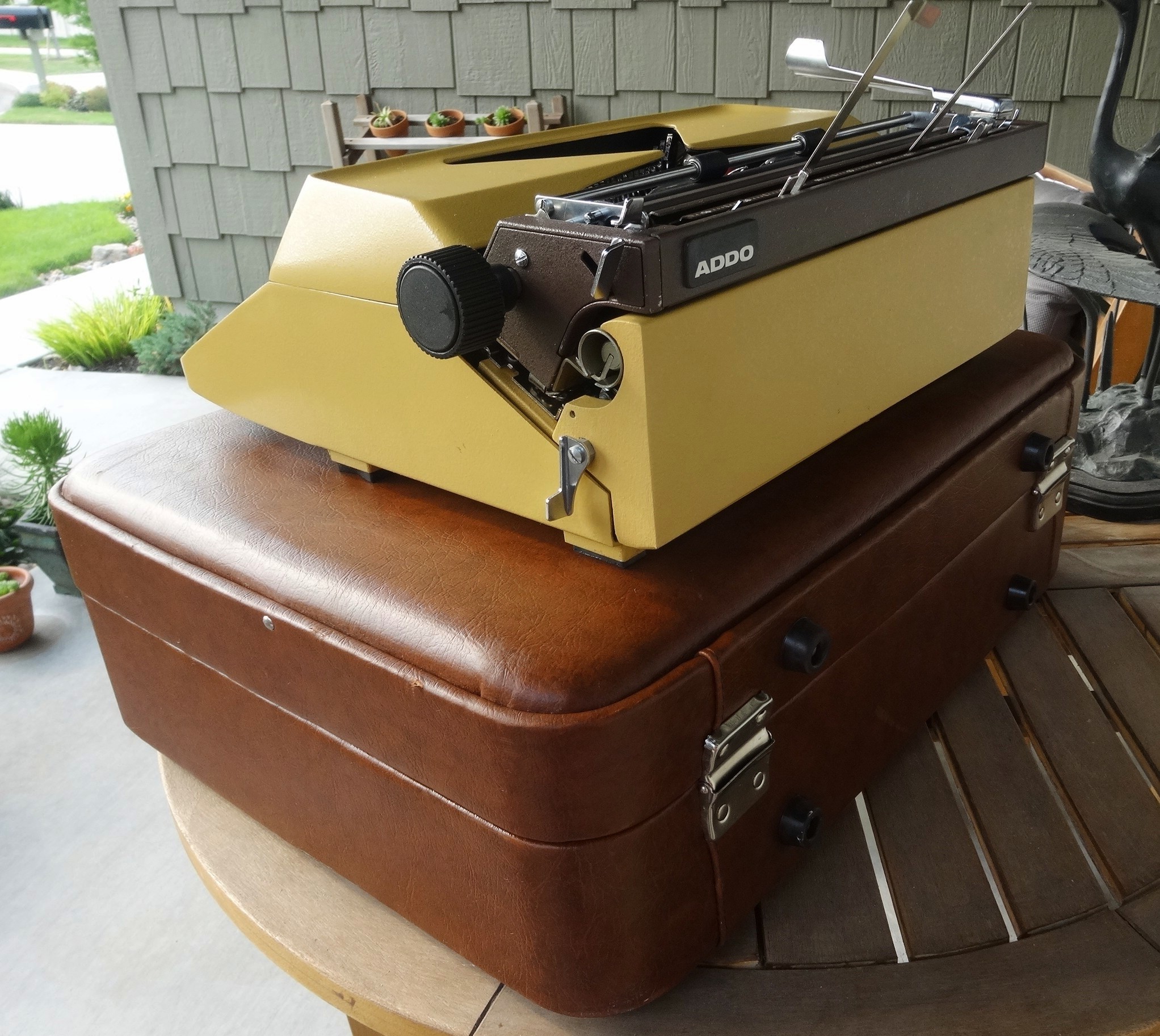
- •
- Pete E.
- Typewriter Talk Elite
 Offline
Offline 
- From: Idaho - USA
- Registered: 23-6-2020
- Posts: 2,591
Re: What Are You Typing On Today...?
An electric on the desk for the day.
1974 Olympia SGE 35 with cursive script. My $ 9.99 win on SGW.
After a couple of months or so, the CR ratchet gear and parts came apart with broken bits falling out. I found another SGE 35 as a parts-machine (broken segment "teeth", bad motor, etc.) that had a perfectly good upper assembly... so easy fix to keep the cursive machine alive.
Plus I gained an extra upper cowling that I could give a nice paint-job.
Of my 5 electric machines...the SGE 35 is the best of the bunch. It weighs in at 28.4 lbs. Very quiet, very fast, and very accurate.
.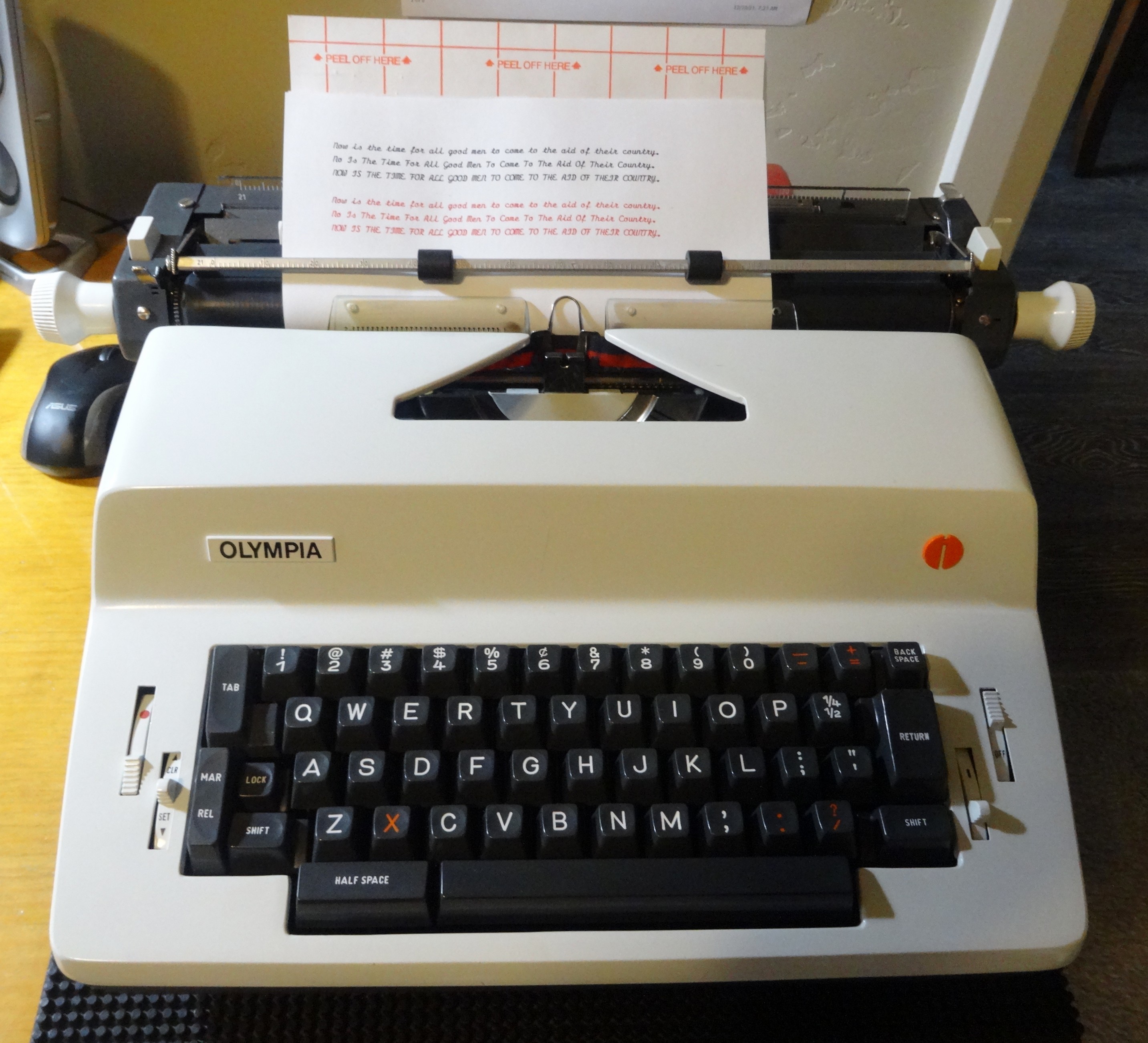
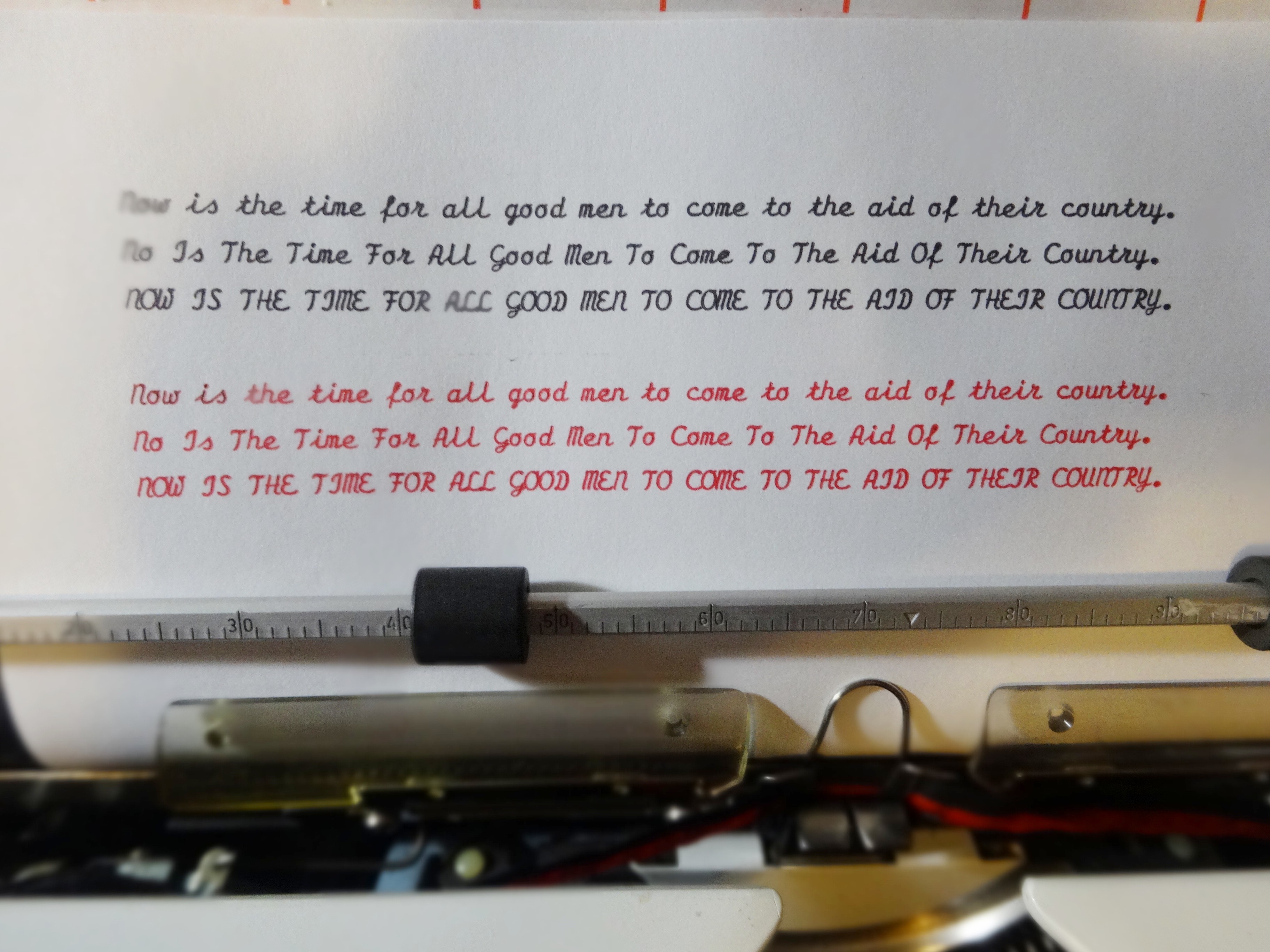
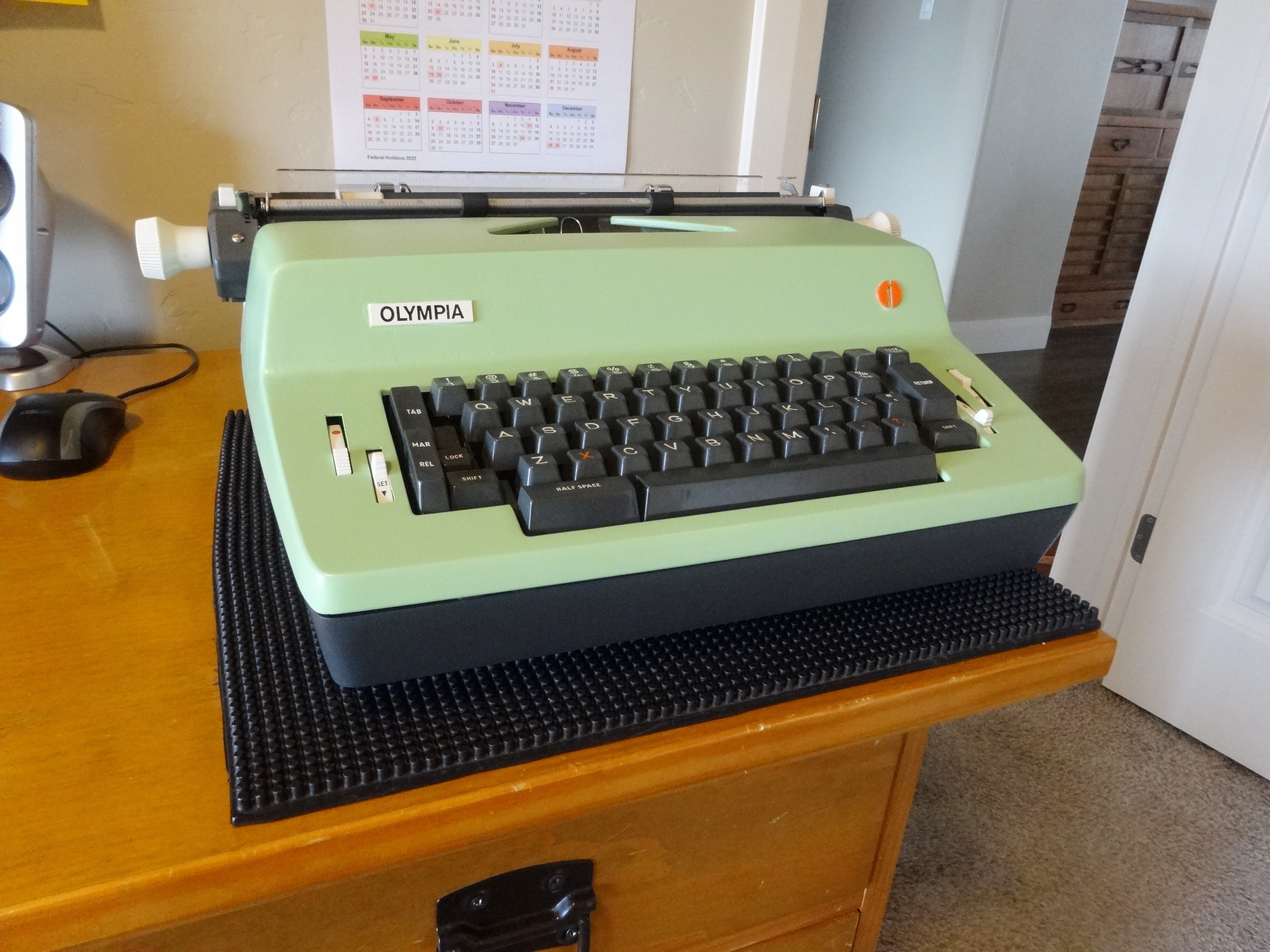
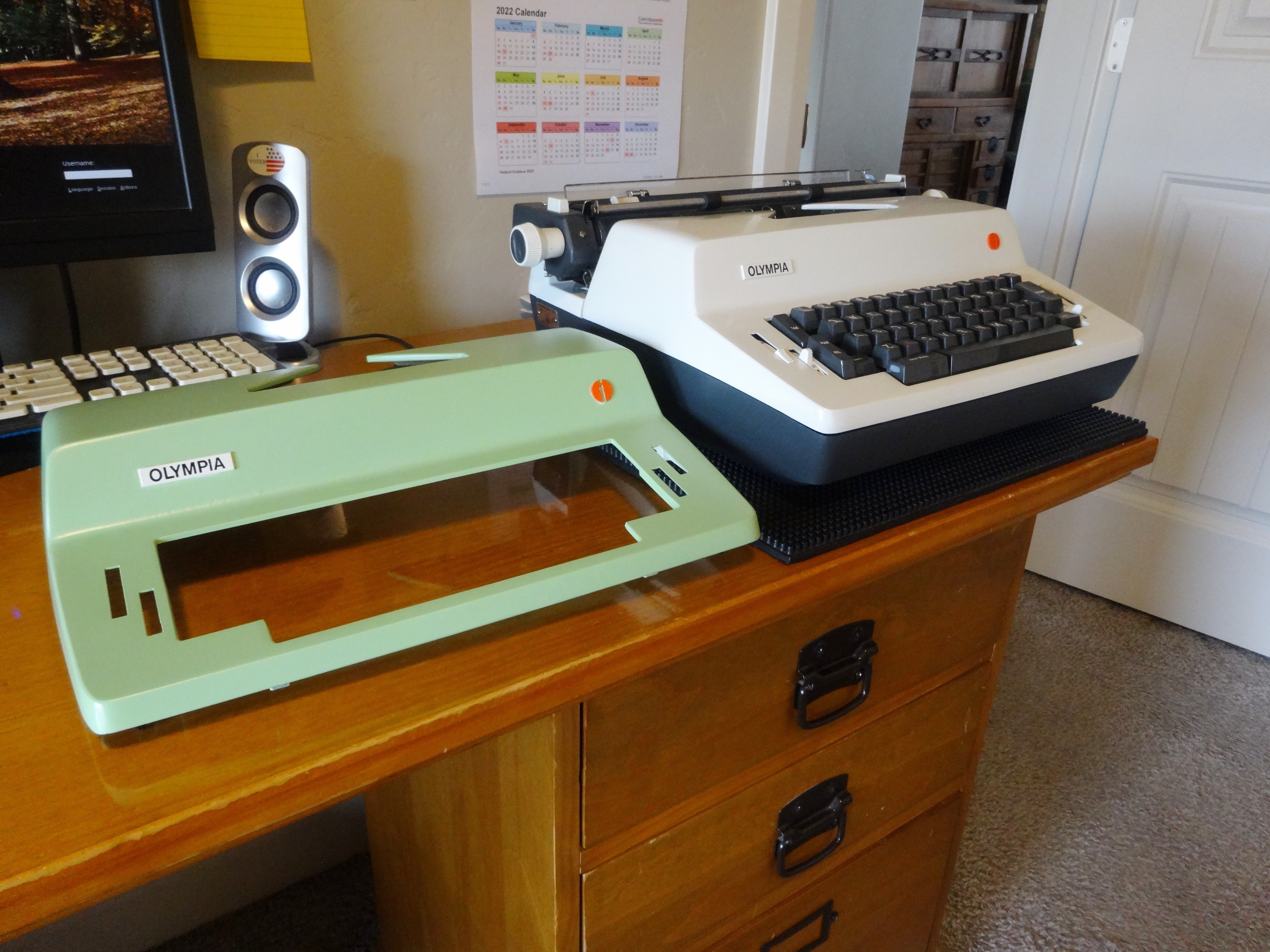
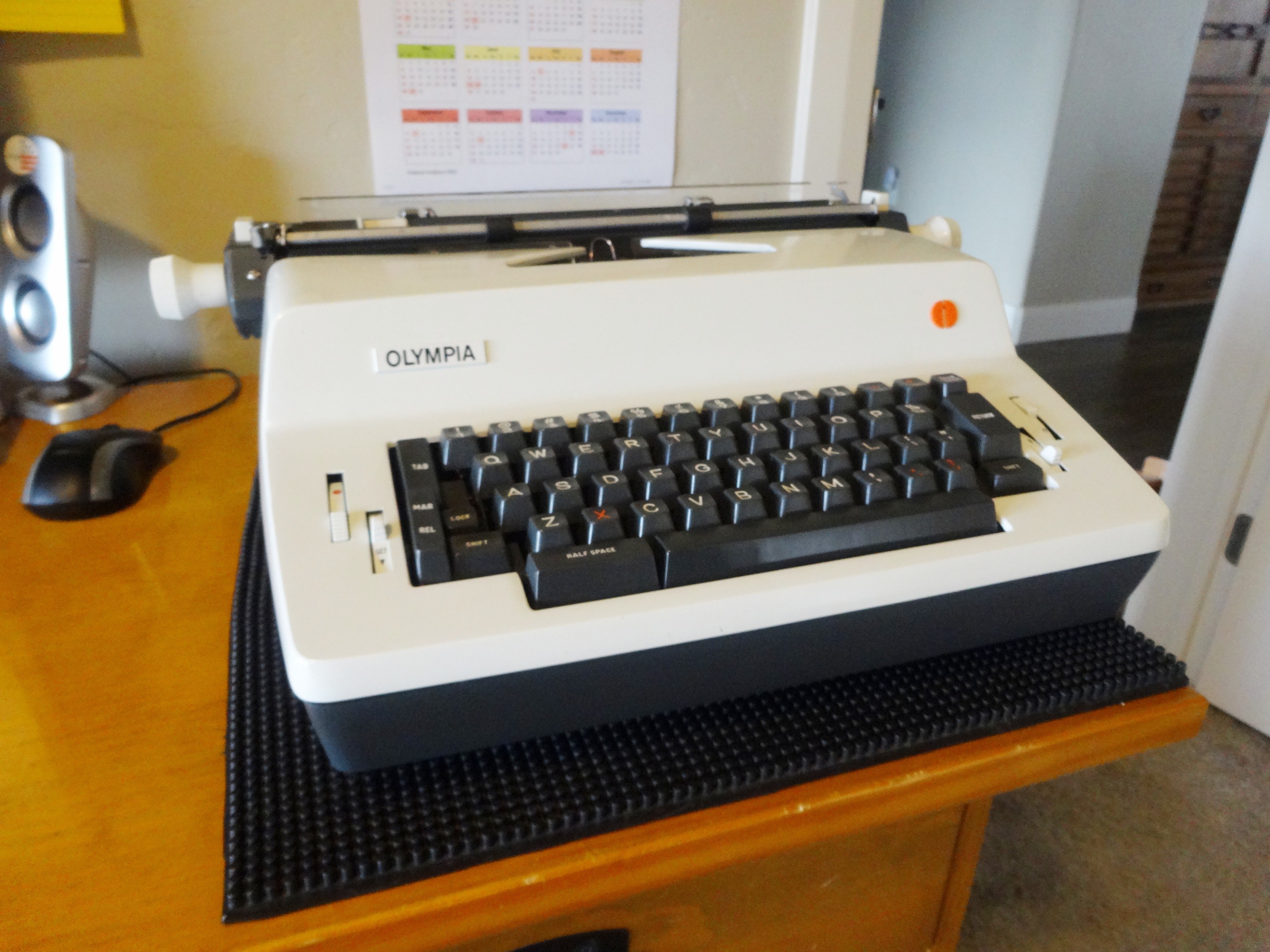
- •
- Pete E.
- Typewriter Talk Elite
 Offline
Offline 
- From: Idaho - USA
- Registered: 23-6-2020
- Posts: 2,591
Re: What Are You Typing On Today...?
Sorry...had a typo in my last post...
This was my $ 39.99 machine. The parts machine was the one that cost me $ 9.99.
- •
- Pete E.
- Typewriter Talk Elite
 Offline
Offline 
- From: Idaho - USA
- Registered: 23-6-2020
- Posts: 2,591
Re: What Are You Typing On Today...?
Another electric on the desk for tomorrow's work...
197x Olympia "Olympiette" Model SEP. Made in Japan.
It has none of the feel of the German-made machines...but made in Japan, it is still a good, dependable electric.
Nice thing I really enjoy is that the carriage is fully manual and only the type-bar & keys are electric-driven.
Quite machine and very fast and responsive. But still gives you the pleasure of using a CR lever.
Weight without its case is only 16.0 lbs.
This SEP went on to become the fully-electric Model SKE with the upper carriage now fully electric as well.
Won it on SGW for $ 19.99 plus S/H.
.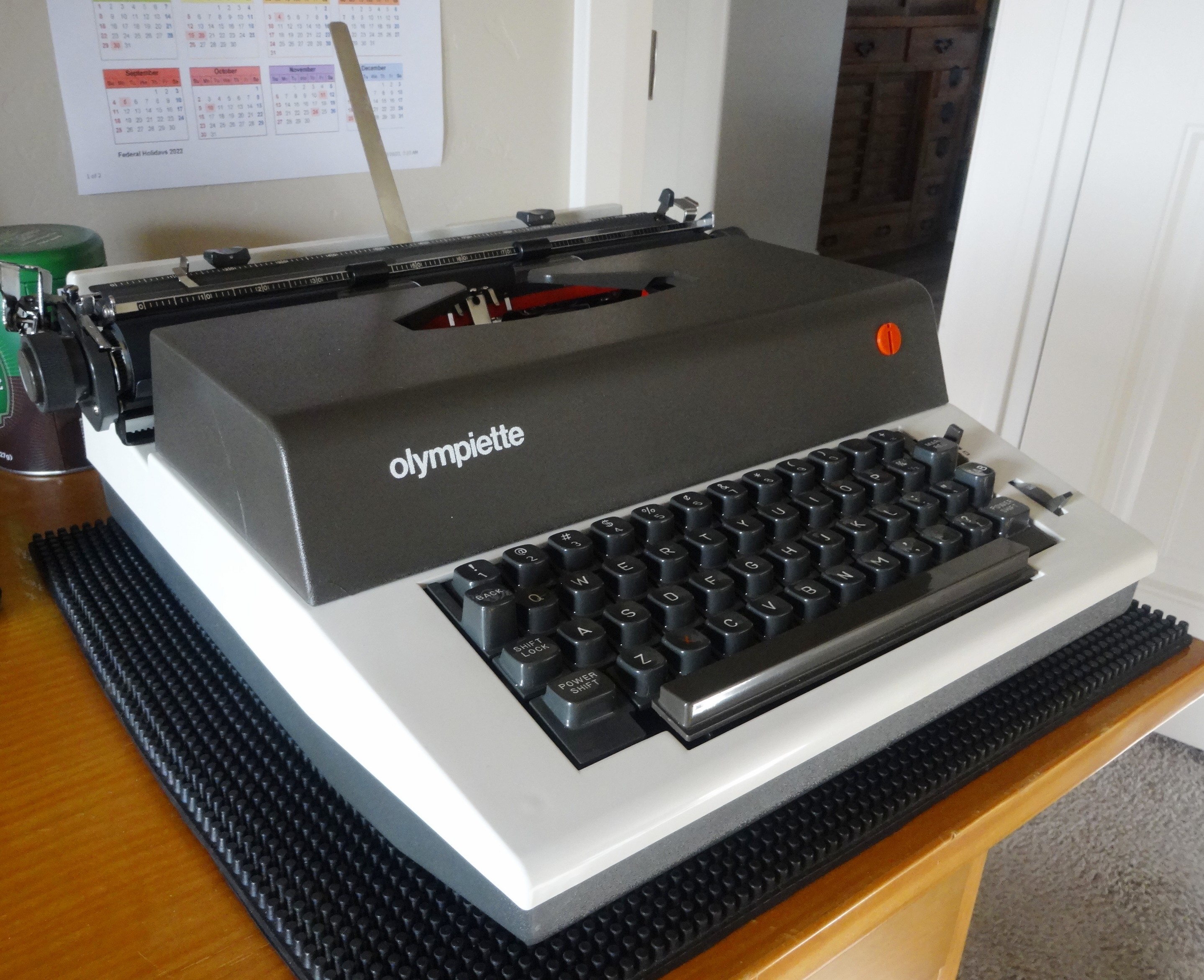
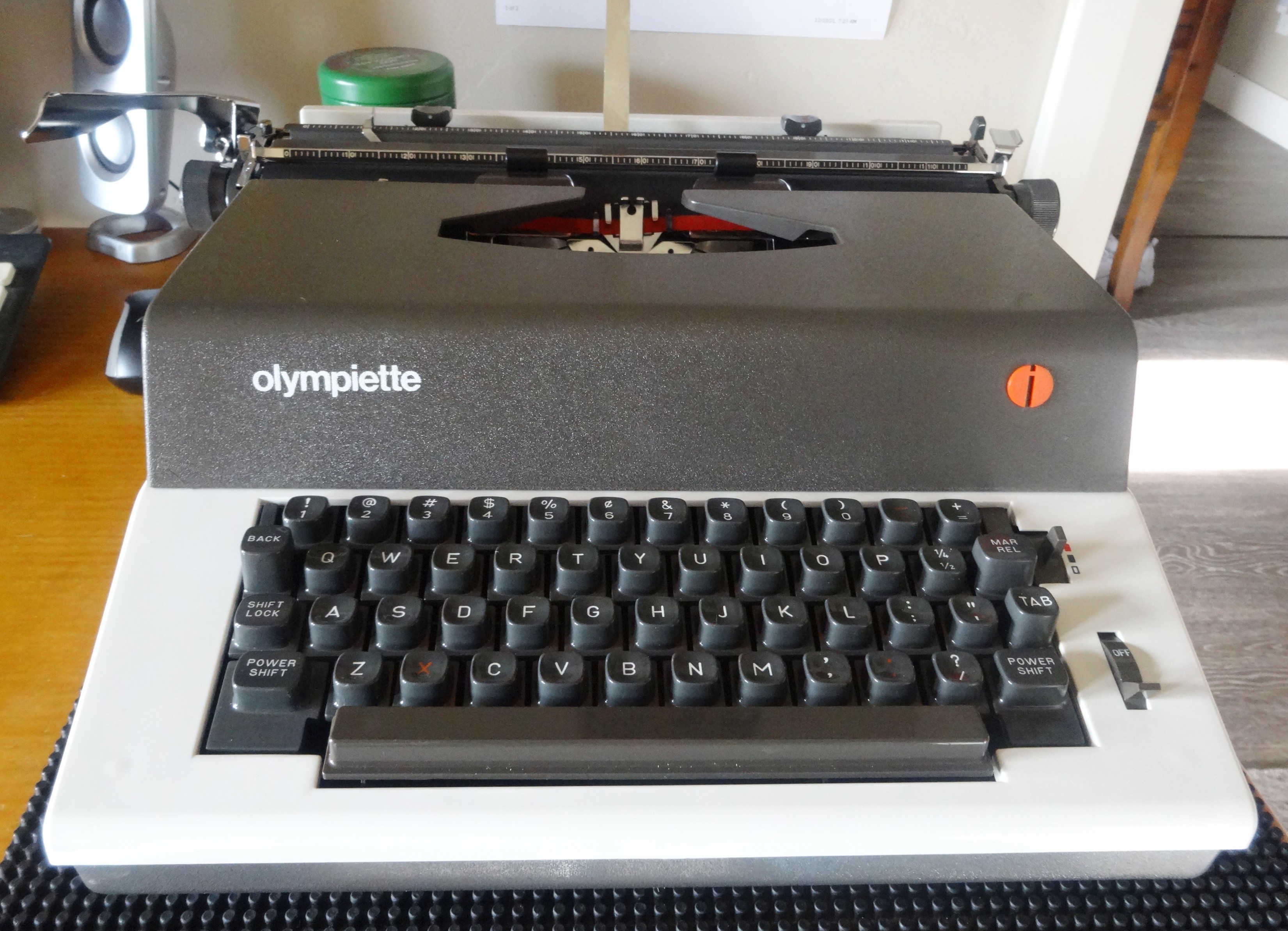
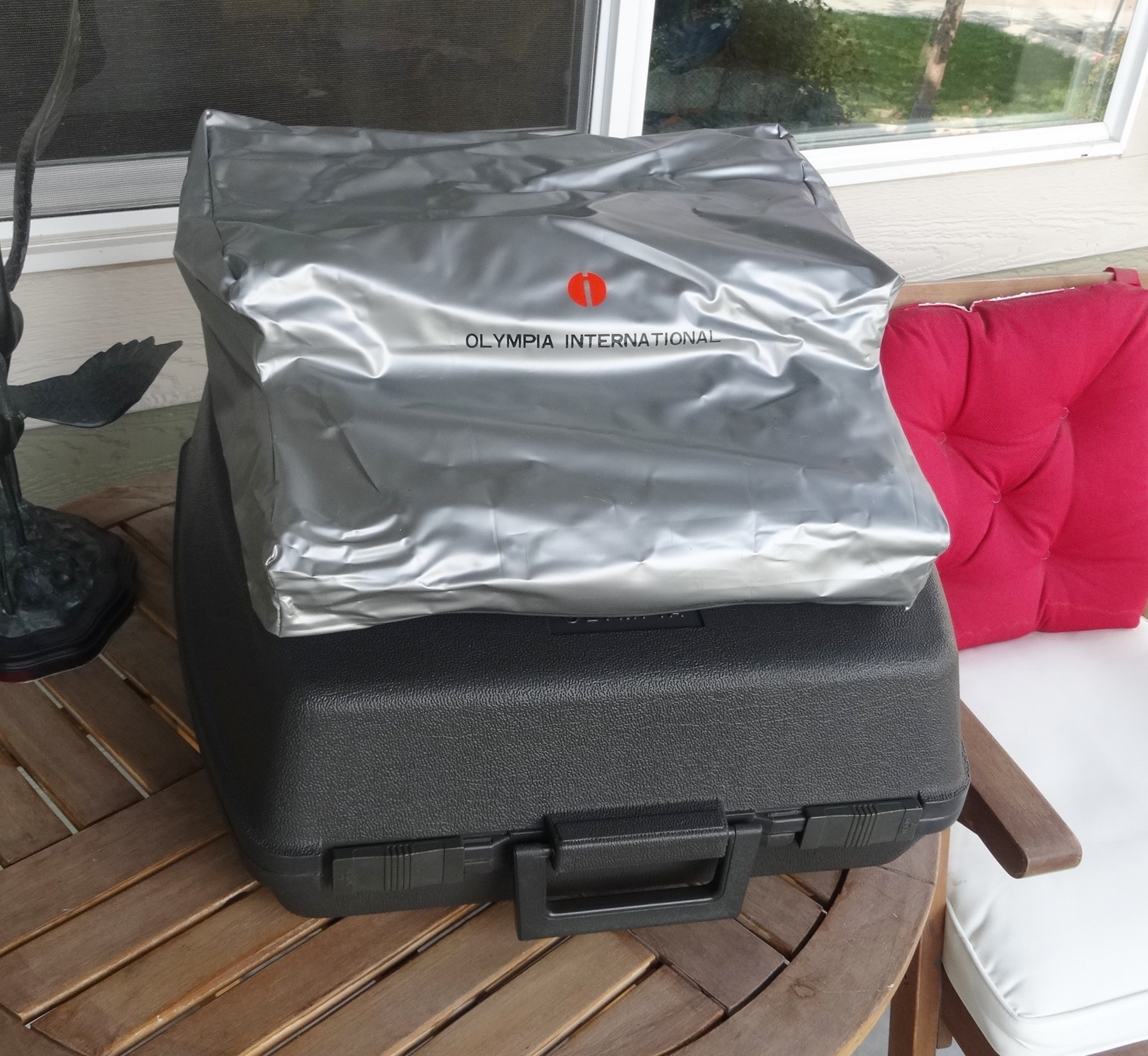
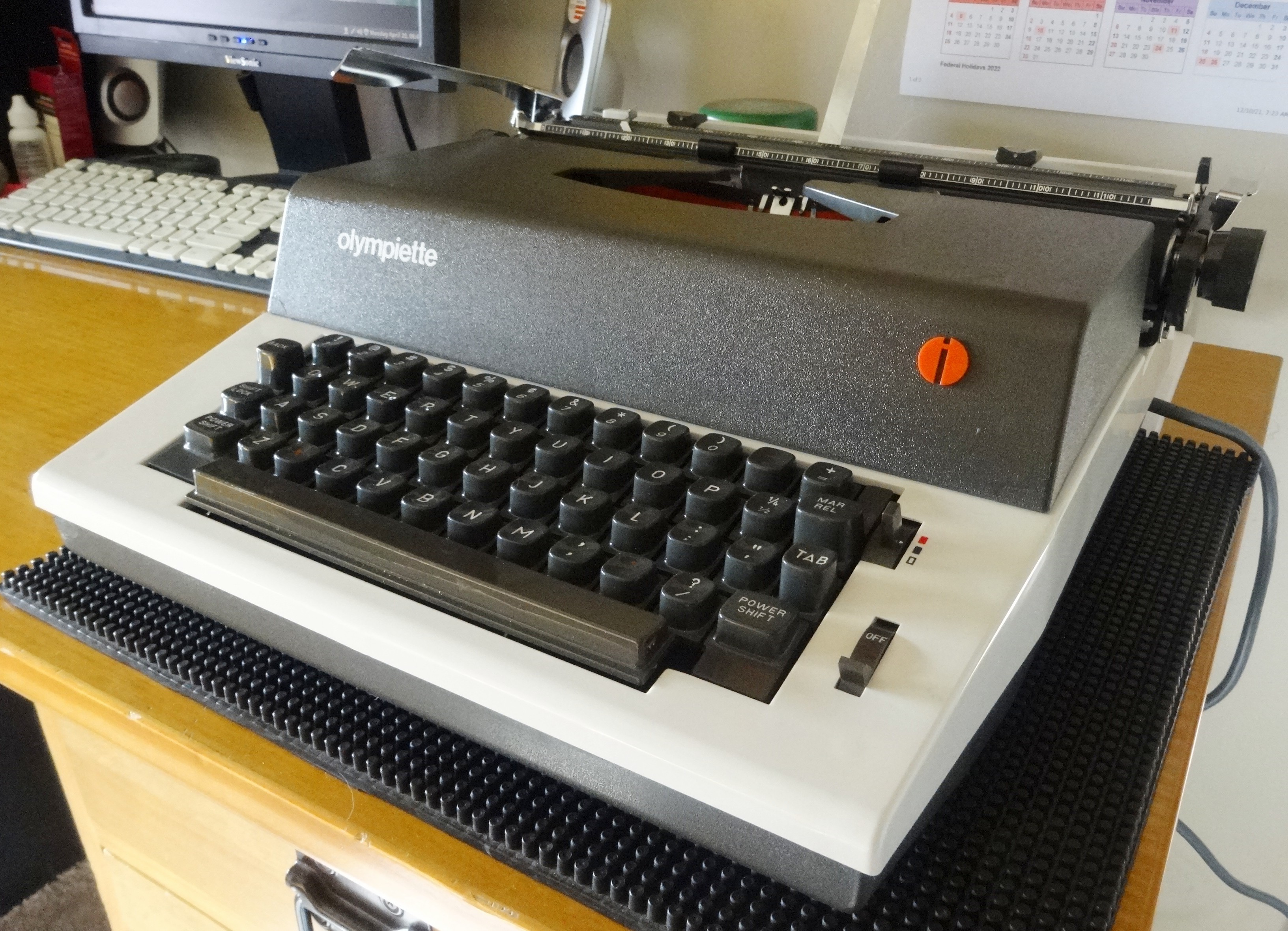
- •


